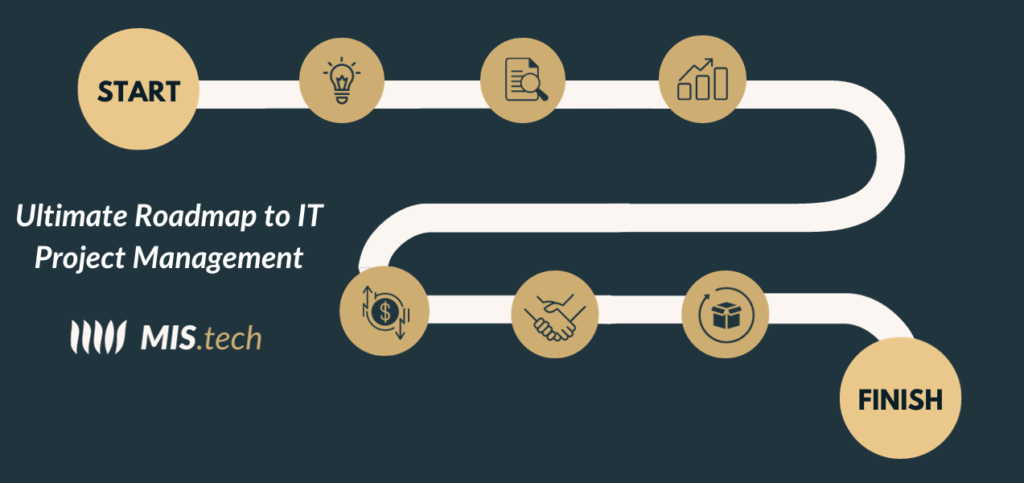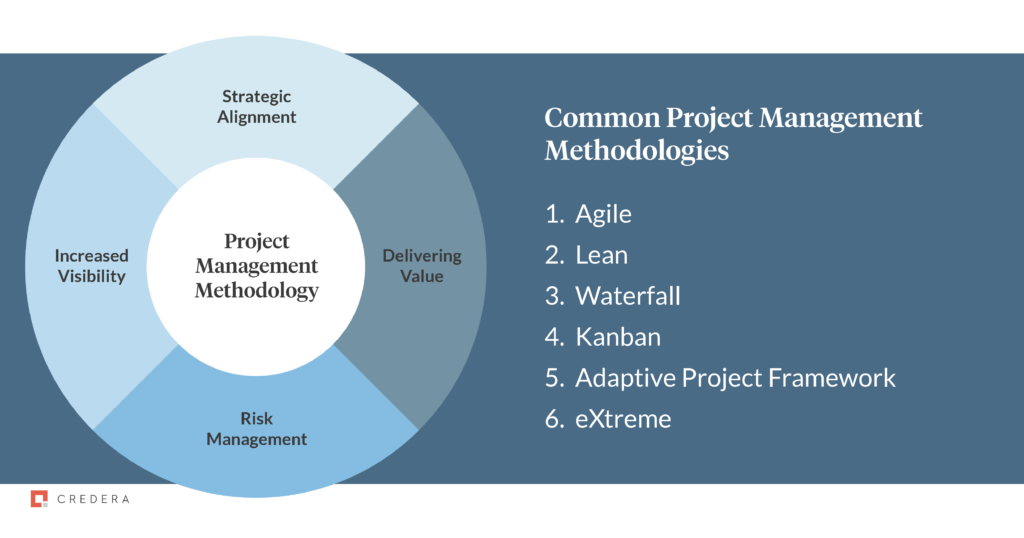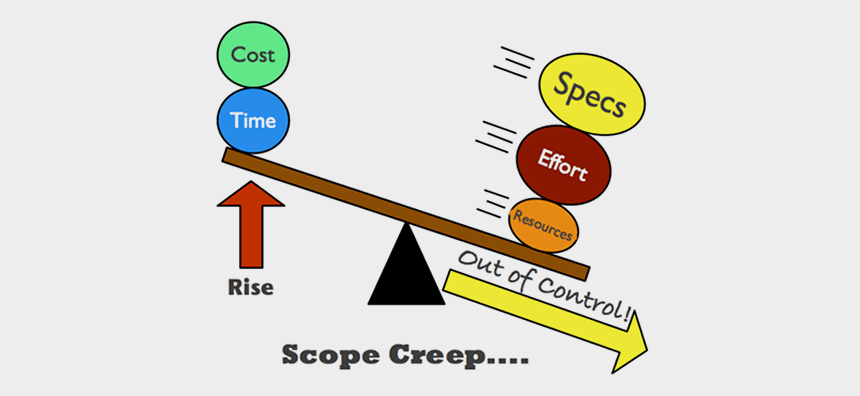Introduction to IT Project Management
Information technology is a hot rave today as tech has infiltrated every sphere of life. New startups are leveraging IT to make an impact. Old businesses are not left out, as many digitize their operations. Professionals across industries make use of technology tools to for IT project management. Modern offices also rely on IT tools to remain operational. This means a ton of new software and IT projects are being developed to meet these growing demands.
To create a project and execute it, adequate management must be involved. Properly managing an IT project is important to reach its goal. Project management is the process of planning, managing, and developing an IT project.

IT project management (PM) happens throughout the project life cycle. It involves methods or processes that manage and control tasks and projects to meet deliverables. Deliverables may be anything. It may be launching a new product or service or improving an existing one. Deliverables are often based on the project objective.
To manage the project effectively, you need the services of a PM professional, also known as a project manager. It is the project manager’s job to ensure that all the processes and resources needed for the execution of a project are in place.
A Typical IT Project Manager Job Description
Every IT project’s success depends on how well it is you manage it throughout its lifecycle. A project manager is responsible for the success of an IT project. A project manager will likely handle a team of professionals. They will delegate tasks, map out a project plan, and ensure the project stakeholder(s) is updated at every step.
Project managers are not expected to know any programming languages or have in-depth technical knowledge, even if they are overseeing a software development project. They are only required to know the project management principles.
The type of project determines what style of project management will be employed to complete the project. There are a couple of them, which will be outlined in this article.
Most companies require an IT project manager to see every project to its completion. This makes it such a well-paying, in-demand job. According to the Bureau of Labor Statistics, the average project manager makes about $95,000 annually and works 40 hours weekly. Anyone can become a project manager if they pass the certification exams. However, it would help if you had at least a bachelor’s degree to show that you have formal education.
Key Responsibilities of an IT Project Manager
According to the PMI annual pulse survey, a project must incorporate these principles to be successful: risk management, a formal structure (project charter or project plan), devoted project sponsors, clear and concise goals, outlined roles and responsibilities, performance management baseline, effective communication, value delivery, and change management.
The project coordinator or manager is in charge of:
- Drafting a project plan: The project manager creates a written document called the project proposal. A project proposal defines the project scope and convinces project stakeholders of the project’s potential.
- Making the teamwork: Teamwork makes the dream work, and the project manager makes sure the team works. Project managers typically are held responsible for the performance of the team members. They may also be asked to assemble a project team based on the project’s requirements. Managing a team means a project manager must know how to use PM tools like Jira, Trello, ClickUp, Asana, etc.
- Ensuring proper communication: There are often different people contributing to a technology project, and they all require different information regarding the project. A stakeholder and a team member do not need the same information regarding project updates. Their interest in the project varies, so you must communicate only what they need to know.
- Identifying project obstacles and managing them: Project managers must be able to forecast an impending risk to a project and be innovative enough to manage them when they arise during the project.
- Cost and Time management: The cost and time taken to complete a project will also be important to shareholders and investors. Everyone wants to achieve more for less and in due time. The project depends on the manager’s ability to set deadlines, delegate tasks, and ensure work is completed before the deadline.
Becoming an IT Project Manager: What Does it Take?

If you are great at managing people and steering them in the right direction to achieve a set goal, consider a program or project management career. Aside from people management, having a handful of skills to manage a project would be best. See if you have any of these:
- You are a natural leader: Trust that leading a team takes more than telling people what they should do. Leading a project team to operations often takes inspiring and incentivizing the team. A lot of time, team members will squabble. There will be a lot of rebellion on your hand when there is friction along the way. Being a natural leader means getting your team members to align with your goals and believe in your judgment to get the job done.
- You communicate promptly and clearly: It takes more than saying what needs to be said. Some things must be said on time; other times, you must pay attention to who you are saying these things to. Communicating as a project manager can be tougher than you think. You need great oral and verbal skills as the overall project success depends on it.
- You are great at negotiating: A project manager might get caught up in conflicting situations where they must bargain with a shareholder, client, or vendor. Such scenarios depend on the project manager’s ability to negotiate and manage conflict.
- You are great at problem-solving: Nobody wants a project manager who cries when the project hits a rough patch or abandons the project when a problem arises. You need to be able to think on your feet. It also means being innovative and creative in how you approach problems.
Is a Degree Compulsory in Project Management
If you have the qualities mentioned above, you are certainly cut out to be a project manager. However, working as a project manager requires you to get certified. You have to acquire PM skills by taking a course recognized by PMI (Project Management Institute). Once certified, you can take internship opportunities and training to gain relevant work experience.
People often ask if you need a bachelor’s degree to be a project manager. The answer is a bit complicated. All the skills you need to be a project manager will be a cquired by taking a PMI course, even if you did no management course in school. However, project managers are often expected to have some formal education, like a bachelor’s degree. This degree might be in any field, but having a computer science or business degree is a great edge in the job market.
The Fundamentals of IT Project Management

What Defines a Typical IT Project
Projects are not like everyday operations or tasks in that they take a great deal of planning and execution to carry out. A typical IT project will have the following characteristics:
- The need for a plan, manager, and team: Ordinary everyday IT operations can only be executed with a well-thought-out plan. For instance, assume workers must log their hours on an Excel sheet. There is no need for any plans to be made to execute such actions, and it certainly doesn’t require a team. However, if we were to build a database that allows us to manage the time stamp of workers like an Excel sheet. That would require a team of software developers, product designers, cloud engineers, etc.
- Follows the project management lifecycle: All IT projects follow five project management processes called a lifecycle: project initiation, project planning, project execution, monitoring, and closure. Each project phase must be completed and delivered to the shareholders for approval.
- Only be completed with the availability of certain elements: Time, Cost, and scope are important factors that must be sorted before project execution.
Why is Project Management Crucial?
When project managers are not involved, you know it is a disaster waiting to happen. If you have ever had to organize any event, you will be fully aware of how important management is in getting anything done. IT projects can be very complex and require several people working together. Friction can occur between two teams working on the same project, and it is the project manager’s job to ease the tension.
Project managers are also visionaries who help others keep the goal in mind. Without their input, we may have dispirited teams that cannot meet project timelines and understand the general project scope. They can also ensure project buy-in by the stakeholders, which is integral to ensuring project completion.
Turning ideas into reality is impossible without a booming project economy. Everyone needs project managers to be at the top of their game to ensure success and shareholder happiness.
A Deep Dive into Project Management Methodologies

Understanding the Project Life Cycle
The project management life cycle highlights the processes needed to ideate and create a project. This encompasses four phases of project management: initiation, planning, execution, and closure. There is often a fifth one, depending on the project management method and project. Project managers may employ a unique project management method to achieve this, but all four phases must be attended to and are important. Let’s dive in a bit to see what each phase entails:
- Initiation: The initiation phase is where you run a survey to understand whether your idea is a solution that your region needs and who your potential consumers will be. You will also get more clarity on the work you hope to achieve as you define your objectives, declare the scope of your project, reach out to project shareholders, and map out deliverables.
- Planning: Once you have given your idea some structure, it is important to outline the strategy by which you hope to achieve your project objectives. At the point of the project lifecycle, create a project plan, estimate the budget needed to actualize the plan, share the project plan with the senior management and team members. Determine the project schedule, and outline the risks of embarking on the project.
- Execution: This phase includes monitoring the team closely, providing feedback to project stakeholders, managing conflicts, and mitigating the risks encountered.
- Closure: You need to tie up any loose ends on a project before moving on to the next project. Analyze the project performance, see how the team performed overall, document major lessons or discoveries, and account for resources used during the project.
Comparing Different IT Project Management Methodologies
Not all IT projects are the same, and even then, the project objective determines what methodology an IT project manager will work with the project. There are many project management methodologies available, and here are a couple:
- The waterfall approach follows a sequence where each phase must be completed before moving on to the next phase. The waterfall approach typically has five stages: planning, design, implementation, verification, and maintenance. It is one of the simplest methods to apply in project management and is well-suited for projects with stable requirements. However, this is not well suited for dynamic projects, takes longer to deliver, and allows for little client participation.
- Agile Project approach: The project is broken down into phases and iterations in this method. It is an iterative approach with a continuous release based on the end-users feedback. The agile approach works if you have a project with changing requirements. This is only good for small projects, not complex projects with fixed timelines.
- Scrum: This is an offshoot of agile project management with emphasized collaboration, transparency, and focus on delivering high-quality features of a project. This project management methodology emphasizes self-management and is not suitable for long-term projects.
- Lean: With the lean approach, you seek to optimize workflow, eliminate waste, and emphasize continuous improvements. It is often used in combination with Agile. You might have to make cultural and organizational changes within your company to implement such a strategy.
There are many more methodologies in project management you can explore to meet your needs as a team. Be sure to weigh the odds and see if it can help you achieve your project objectives.
Picking the Right Methodology for Your Project
When choosing the right methodology for your project, you should keep the following in mind:
- Project size and cost
- The complexity of the project you are embarking on
- The risks associated with the project
- How receptive and knowledgeable your team is about the method of your choice
- Project and organization goals
- The opinions of your stakeholder(s)
- The downsides of using such an approach
- The changes that must be made to implement the methodology you have chosen.
You can use a PM methodology assessment template to evaluate the methodology of your choice.
Overcoming the Unique Challenges of IT Project Management

Staying Updated with Changing Technology
As technology advances and more complex IT projects are being developed, there is a need to develop better technology and more efficient methods to manage these projects .
As a project manager trying to stay on top of their game, you must keep up with the updates. This might seem like a lot, but you can do this by being a part of a community, networking with other professionals and asking them what they are doing differently, and attending seminars and conferences to stay updated on trends. You should also prioritize learning and consume as many publications in your field as possible.
Ensuring Effective Communication in Your Team
You will work with different people as the project progresses, from vendors to team members to end-users. You should also remember that communication is beyond what you say; make sure your non-verbal messages are also on cue.
Make sure you use clear and concise language to help your audience understand. Tailor your message to fit your audience; your shareholders do not want to hear about your fight with the developers over the new feature.
Active listening is also an integral part of communication as a project manager. No matter how well the project is going, if you dismiss the complaints and concerns of your stakeholders, you might have a dilemma on your hands in no time.
Maintaining Transparency in the Project
Watching yourself underdeliver or getting stuck in a project might be hard. You may not be hitting the KPIs you set, but do not attempt to mislead anyone.
When there is any problem, do well to communicate promptly to everyone about the problem. This way, everyone knows what is happening and can help you get it fixed. Misleading your superiors and project team never ends well, and you will lose all trust once it is discovered.
The Importance of Project Management Tools and Software
Project leaders use many tools to ensure a smooth flow of operations and create a collaborative environment. You must familiarize yourself with all the best tools in the market to make yourself an exceptional PM.
Top Features to Look for in IT Project Management Tools
There are a lot of tools in the market these days, and it can take time to sift through the junk to see what works best. All you have to do is look out for these top features to make the right choice.
- Task management
- File sharing and team messaging
- Features to track timelines
- Budget and cost tracking
- Analytics, reporting, and data visualization
- Workflow automation
- Cyber security
Exploring Different Project Management Software Options
Here are five PM software options that every PM should explore in 2023:
- Trello
- Wrike
- Asana
- Jira
- Paymo
When exploring these software options, consider the features your team will need the most. Wrike is known for being a great file-sharing platform. Paymo allows for intercontinental collaboration, as it supports about 23 languages. Basecamp helps to streamline processes.
How to Leverage Technology for Effective Project Management
Leveraging technology allows you to automate workflows, track the project’s progress, quickly nip problems in the bud, and document the process in real time. You should always remember that any technology you use has to ease the project into a smooth flow.
Seek technology with adequate cloud storage, a great user interface, and collaboration tools.
Navigating the Path to IT Project Management Certification
![Top 9 Project Management Certifications [2023] - Troop Messenger](https://s3.us-east-1.amazonaws.com/files.tvisha.aws/posts/crm/panel/attachments/1583493301/project-managment-certification-pmp-compressor.png)
Renowned Project Management Certifications
As I mentioned earlier, starting your PM journey requires being certified. You can get certified by taking a digital course. Depending on what aspect of project management (traditional project management or Agile or Scrum) you wish to delve into, there are online courses to help you.
Make sure you get globally recognized certifications that are relevant today. Here are some you can look into:
- Agile Certified Practitioner (ACP)
- Project Management Professional (PMP)
- BVOP Certified Project Manager
- Associate in Project Management (APM)
- Certified Project Management (CPM)
- Certified Project Manager (CPM-IAPM)
- Certified ScrumMaster (CSM)
Benefits of Obtaining a Project Management Certification
Getting a globally recognized certification will open you to international opportunities. You also gain credibility, boosting your career advancement as a professional. Taking more courses is great for gaining new skills and staying relevant in the industry as times change. You get to stay ahead of the curve.
Paving the Way for a Successful IT Project Management Career
The demand for project managers is rising. By 2027, about 88 million jobs will be up for project management and related professionals. It might not be an easy route, but it pays off eventually. Becoming an IT project manager takes intense focus, consistency, and determination. Once you have all the qualities, you are on your way to a successful and rewarding career as a project manager.


